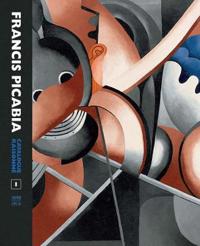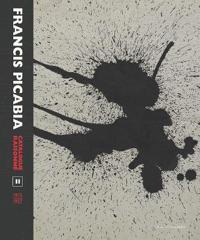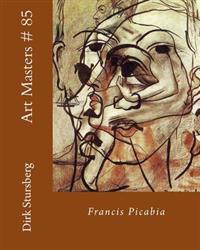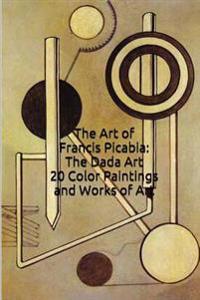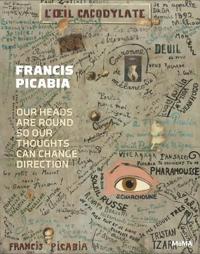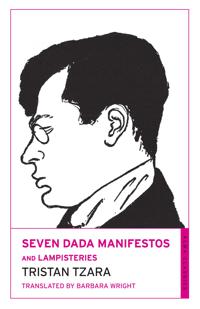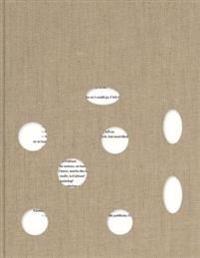Artwork Caught by the Tail, The: Francis Picabia and Dada in Paris (Övrig)
avGeorge Baker
ISBN: 9780262026185 - UTGIVEN: 2007-11-02The artist Francis Picabia--notorious dandy, bon vivant, painter, poet, filmmaker, and polemicist--has emerged as the Dadaist with postmodern appeal, and one of the most enigmatic forces behind the enigma that was Dada. In this first book in English to focus on Picabia's work in Paris during the Dad[...]
I am a Beautiful Monster: Poetry, Prose, and Provocation (Övrig)
avFrancis Picabia
ISBN: 9780262162432 - UTGIVEN: 2007-11-02Poet, painter, self-described funny guy, idiot, failure, pickpocket, and anti-artist par excellence, Francis Picabia was a defining figure in the Dada movement; indeed, Andre Breton called Picabia one of the only "true" Dadas. Yet very little of Picabia's poetry and prose has been translated into En[...]
Artwork Caught by the Tail, The: Francis Picabia and Dada in Paris (Övrig)
avGeorge Baker
ISBN: 9780262514866 - UTGIVEN: 2010-10-08The artist Francis Picabia--notorious dandy, bon vivant, painter, poet, filmmaker, and polemicist--has emerged as the Dadaist with postmodern appeal, and one of the most enigmatic forces behind the enigma that was Dada. In this first book in English to focus on Picabia's work in Paris during the Dad[...]
I Am a Beautiful Monster: Poetry, Prose, and Provocation (Pocket)
avFrancis Picabia
ISBN: 9780262517485 - UTGIVEN: 2012-02-10Francis Picabia Catalogue Raisonné
ISBN: 9780300208283 - UTGIVEN: 2015-03This publication is the first of four volumes in the catalogue raisonne of Francis Picabia (1879-1953), one of the most significant, challenging artists of the 20th century. The works in Volume I range from Picabia's early pieces as an Impressionist in the 1890s to his Cubist and abstract paintings [...]
Francis Picabia Catalogue Raisonné 1915-1927
ISBN: 9780300222463 - UTGIVEN: 2017-01The second of an important multi-volume catalogue project, this publication features work by Francis Picabia (1879-1953) that dates from 1915 into mid-1927. Beginning with Picabia's elaboration of a personal machinist aesthetic, the book continues by looking at the artist's central role in the formu[...]
The Art of Francis Picabia: The Dada Art 20 Color Paintings and Works of Art: (The Amazing World of Art: Dada) (häftad)
ISBN: 9781523285808 - UTGIVEN: 2016-01Francis Picabia
ISBN: 9781633450035 - UTGIVEN: 2016-07Published in conjunction with the first large-scale retrospective of Picabia's work in the United States since 1970, "Francis Picabia: Our Heads Are Round so Our Thoughts Can Change Direction" is a sweeping survey of the artist's profoundly innovative and influential career. Among the great modern a[...]
Seven Dada Manifestos and Lampisteries (Häftad)
avTristan Tzara, Francis Picabia
ISBN: 9781847493620 - UTGIVEN: 2014-09The famous manifestos that first appeared between 1916 and 1921 and would become the basic texts upon which Dada was based Tristan Tzara--poet, literary iconoclast, and catalyst--was the founder of the Dada movement that began in Zurich during World War I. His ideas were inspired by his contempt for[...]
Francis Picabia: Litterature
ISBN: 9781942884248 - UTGIVEN: 2018-01Limited to 500 copies, Litterature pairs excerpts from Francis Picabia's (1879-1953) novel Caravanserail with nine drawings and seventeen studies he created for the cover of Andr Breton's Litterature journal between 1922 and 1924. This beautifully produced linen-bound book--whose front cover featur[...]





